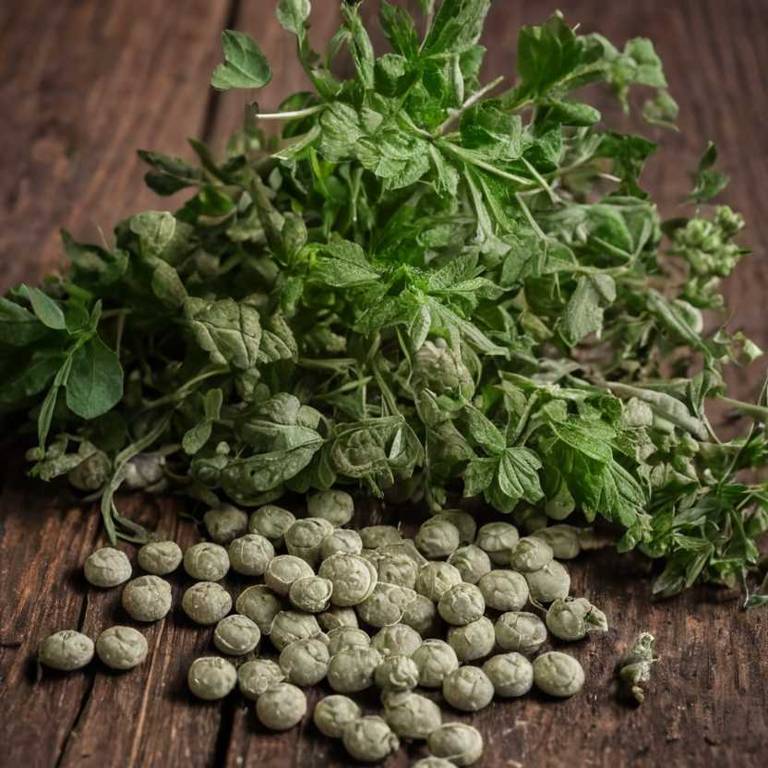By Leen Randell
Updated: Jul 05, 2024
What Are The Medicinal Properties Of Eleutherococcus Senticosus (Siberian Ginseng)?

Eleutherococcus senticosus, also known as Siberian ginseng, has health benefits such as reducing fatigue and stress, improving immune function, and enhancing physical and mental performance.
Its medicinal constituents include eleutherosides, flavonoids, and lignans, which contribute to its adaptogenic properties. Siberian ginseng is often prepared as a decoction, extract, or tincture, and is used to treat a range of conditions, including anxiety and chronic fatigue. Common side effects of Siberian ginseng include insomnia, agitation, and allergic reactions.
To use this herb safely, individuals with high blood pressure or bleeding disorders should consult with a healthcare professional before taking it.
This article explains the health benefits, active constituents, medicinal preparations, possible side effects, and precautions related to Eleutherococcus senticosus.
- What are the health benefits of Eleutherococcus senticosus?
- What are the active constituents of Eleutherococcus senticosus?
- What are the medicinal preparations of Eleutherococcus senticosus?
- What are the possible side effect of using Eleutherococcus senticosus improperly?
- What precautions to take when using Eleutherococcus senticosus medicinally?
What are the health benefits of Eleutherococcus senticosus?
Eleutherococcus senticosus, also known as siberian ginseng, has health benefits such as reducing stress and fatigue, improving immune function, and enhancing physical endurance.
It also exhibits antioxidant and anti-inflammatory properties, which may help protect against chronic diseases like cancer and cardiovascular disease.
Additionally, Siberian ginseng may help regulate blood sugar levels and improve mental clarity and focus, making it a popular natural remedy for overall wellness.
Here's a detailed article about the 10 health benefits of Eleutherococcus senticosus.
What are the active constituents of Eleutherococcus senticosus?
Eleutherococcus senticosus, also known as siberian ginseng, has active constituents such as triterpene saponins, phenolic acids, and phenylethanoid glycosides.
These compounds contribute to its medicinal properties, including adaptogenic, anti-inflammatory, and antioxidant effects.
The root extract has also been found to contain eleutherosides, a group of triterpenoid saponins that are believed to be responsible for its bioactive properties and potential therapeutic applications.
Here's a detailed article about the 10 active constituents of Eleutherococcus senticosus.
What are the medicinal preparations of Eleutherococcus senticosus?
Eleutherococcus senticosus, also known as siberian ginseng, has medicinal preparations such as tinctures, capsules, and tablets that contain extracts of the plant's root and leaves.
These preparations are often standardized to contain specific levels of eleutheroside, a key bioactive compound.
Dried roots can also be made into tea or powder and used to support immune function and reduce stress, with recommended dosages varying from 400mg to 2 grams per day.
Here's a detailed article about the 10 medicinal preparations of Eleutherococcus senticosus.
What are the possible side effect of using Eleutherococcus senticosus improperly?
Improper use of Eleutherococcus senticosus, also known as siberian ginseng, increases the chances of experiencing side effects such as fatigue, insomnia, and anxiety.
It can also interact with certain medications, including blood thinners, diabetes medications, and blood pressure medications, leading to adverse reactions.
Additionally, high doses may cause stomach upset, nausea, and diarrhea, while prolonged use may lead to overstimulation of the adrenal glands, exacerbating conditions like hypertension and cardiovascular disease.
Here's a detailed article about the 10 most common side effects of Eleutherococcus senticosus.
What precautions to take when using Eleutherococcus senticosus medicinally?
Before using Eleutherococcus senticosus, also known as siberian ginseng, for medicinal purposes, you must take precautions such as consulting with a healthcare professional to determine the safe dosage and potential interactions with other medications.
Additionally, individuals with high blood pressure, heart conditions, or allergies should exercise caution, as the herb may exacerbate these conditions.
Pregnant or breastfeeding women should also avoid its use due to limited research on its effects during these periods.
Here's a detailed article about 10 precautions to take when using Eleutherococcus senticosus.